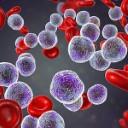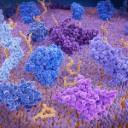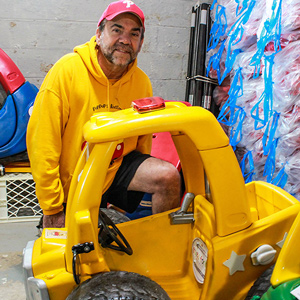-
A Drive for Diversity
African Americans are underrepresented in the Be The Match bone marrow donor registry. Patient advocates are working to change that.
by Jon Kelvey
-
Immunotherapy Options for Breast Cancer
Two immune checkpoint inhibitors are now approved for treatment of some people with advanced breast cancer, but trial results have raised some questions.
by Anna Goshua
-
Living Beyond a Diagnosis
Judy Pearson was surprised by the demands of cancer survivorship. Here, she offers tips on how to look at life after cancer.
by Judy Pearson
-
Colorectal Cancer Screenings at Home
Stool-based tests could increase access to colorectal cancer screening.
by Jen Tota McGivney
-
When Young Adults Need Care
For adolescents and young adults who have been diagnosed with cancer, caregivers can play an influential—but often overlooked—role in providing help and support.
by Carly Flumer
-
Roadblocks to Care
Some cancer patients struggle to find transportation to their appointments. The coronavirus pandemic has further limited options for patients looking for rides.
by Anna Goshua
-
Getting Serious About Depression
Cancer survivors have higher rates of depression than the general population, but many don't know help is available.
by Cameron Walker
-
Multiple Myeloma: Choosing Your Path
New therapies provide hope and options for people as they monitor and manage this incurable blood cancer.
by Tara Haelle
-
Survivor Profile
A Voice at RiskRob Paulsen has voiced hundreds of animated characters, but as he prepared to return to a beloved role, cancer threatened his livelihood.
by Bradley Jones
-
Get Involved
Smiling FacesRich Nardiello seeks to bring a smile to children with cancer.
by Bradley Jones
Cancer Talk
Physical Activity Linked to Lower Colon Cancer Recurrence
Participating in a structured exercise program after treatment was associated with a reduced risk of recurrence in people who had colon cancer.
by Sandra Gordon
Gaps in Survivorship Care Leave Unmet Needs After Cancer TreatmentA survey of head and neck cancer survivors reveals that many are not getting adequate survivorship care and may not even know it is available.
by Cameron Walker
Improving Communication for Deaf Cancer PatientsAfter a cancer diagnosis, people who are deaf or have hearing problems can struggle if accommodations don’t meet their communication needs.
by Eric Fitzsimmons
Is Immunotherapy Right for People Hospitalized With Advanced Cancer?Researchers find no evidence that immune checkpoint inhibitors benefit cancer patients getting inpatient care. They urge earlier consideration of palliative care.
by Kyle Bagenstose















